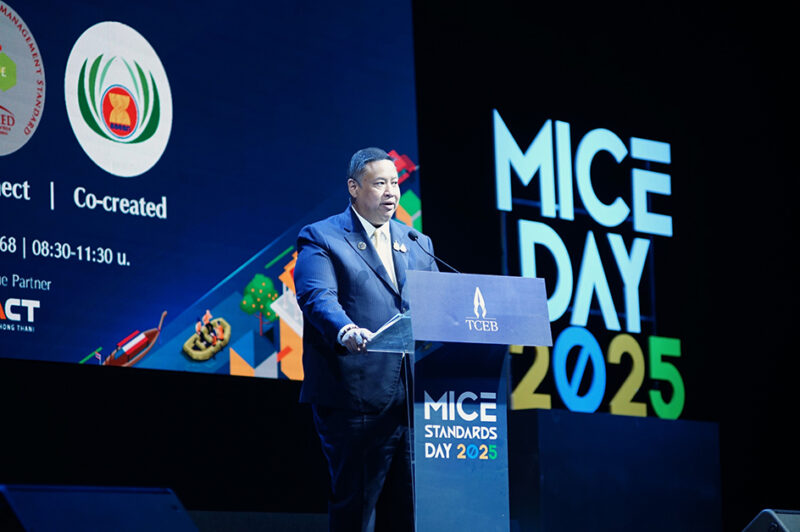
Nissan Motor Company has simplified processes, reduced relief worker costs and stabilised production output through deployment of Universal Robots’ UR10 cobots
Bangkok, 7 April 2017 – Universal Robots, the leading collaborative robotics company, has announced that Nissan Motor Company has successfully deployed Universal Robots’ UR10 robot arms at its Yokohama factory; joining other global automotive manufacturers including BMW and Volkswagen who are using Universal Robots’ collaborative robots (cobots) to automate their processes. Through the deployment of Universal Robots’ cobots, Nissan has enhanced its production processes, resulting in a higher level of output and stability as well as time and cost efficiencies. Nissan’s aging workforce also enjoy a reduced workload, and were redeployed to less strenuous tasks.
Shermine Gotfredsen, General Manager, SEA and Oceania, said, “We are excited to be working with Nissan in their automation journey. The global automotive industry plays a key role in driving the adoption of collaborative robots (cobots) to produce better manufacturing output, and this is critical for industry players to stay competitive. Universal Robots is at the forefront of this trend; our cobots effectively support process automation, resulting in improved safety standards and less strain on human employees. This can be applied not only in the automotive industry, but also in the manufacturing of electronics and electrical, pharma and chemistry, and food and agriculture.”
Cobots are an offshoot of traditional industrial robots. They are lightweight and mobile in terms of deployment, and are flexible enough to be modified for different applications. The automotive industry uses cobots in a wide variety of processes including handling, assembling, packaging, palletizing, labelling, painting, quality control and machine tending. The market value for collaborative industrial robots in the automotive industry was US$23.56 million in 2015 and is projected to reach US$469.82 million by 2021, at a CAGR of 64.67% between 2015 and 2021.
Rise of Collaborative Industrial Robots in Thailand’s Automotive Industry
The automotive industry in SEA is poised for great growth with large markets experiencing important sales growth. As a key manufacturing hub producing for Asia and the world, SEA’s automotive sector has growth at 11% CAGR between 2010 and 2015 . The upcoming implementation of Association of South-East Asian Nations (ASEAN) Free-Trade Area is expected to lower import and export taxes in the region, further driving demand for cost-effective regionally manufactured vehicles.
Thailand and Indonesia are especially convenient manufacturing hubs to produce vehicles for export in the region, Asia and beyond. The Thai automotive sector is a major economic driver, accounting for approximately 12% of the country’s GDP . It has strong infrastructure and an extensive network of companies all along the car-production supply chain; making it the top automotive manufacturer, with a 49% market share in the region . With increasing manufacturing demand, the Thai automotive industry is moving towards automation using collaborative industrial robots.
UR10 Robot Arms at Nissan Motor Company
Nissan Motor Company needed to streamline its production process at its large-scale Yokohama plant. The company also needed to manage labour costs with an aging workforce and the associated loss of vital skills.
Mr Nakamura, Expert Headman for the plant’s Engine Section, said: “We needed a robot large enough to carry hefty intake manifold components, weighing up to 6kgs. On comparison with other companies’ robots, we selected the UR10 due to its cost advantages for a single robot, as well as its weight capacity. In the process of installing the intake manifolds, only the UR10 robot arm had the payload of 10kg among the other products we considered.”
Universal Robots’ cobots are collaborative industrial robot arms that can automate processes and tasks that weigh up to 10 kg, and require precision and reliability. With a reach radius of up to 1300mm, the cobots are designed to be more effective at tasks across a larger area, and can save time on production lines where distance can be a factor. Universal Robots’ cobots are easy to program and set up. They are designed to work alongside humans, as a tool, to help simplify and speed up tasks that might be complicated, or require greater physical strength.
After deliberating on the range of safety and features required, Nissan decided on using the UR10 robot arms which were easily installed, programmed and operational within a week. The deployment of UR10 robot arms at Nissan reduced production time and quality as well as allowed employees to be relieved of monotonous tasks, allowing them to obtain valuable line experience elsewhere.
Subsection Chief of Engine Section Mr Onishi said: “We are able to quickly respond to potential production time overruns as we can easily move the UR10 to work on any process in the plant where the issue has been identified. We plan to further the use of cobots by integrating the strong on-site and engineering capabilities, which will increase our level of cobots deployment going forward.”
For more details on how Nissan Motor Company is using UR10 robots please click here.
– Ends –
About Universal Robots
Universal Robots is the result of many years of intensive research at Denmark’s successful robot cluster, which is located in Odense, Denmark. The company was co-founded in 2005 by the company’s CTO, Esben Østergaard, who wanted to make robot technology accessible to all by developing small, user-friendly, reasonably priced, flexible industrial robots that are safe to work with and on their own can be used to streamline processes in the industry. The product portfolio includes the collaborative UR3, UR5 and UR10 robotic arms named after their payload in kilos. Since the first UR robot launched in December 2008, the company has experienced considerable growth with the user-friendly robots now sold in more than 50 countries worldwide. Within 12 months, the average payback period for UR robots is the fastest in the industry. The company, a part of Boston-based Teradyne Inc., is headquartered in Odense and has subsidiaries and regional offices in the U.S., Spain, Germany, Singapore, Czech Republic, India, and China. Universal Robots has more than 300 employees worldwide. Learn more at: www.universal-robots.com.
For more information, please visit http://www.universal-robots.com, http://www.universal-robots.com/plus/ and the company-owned blog.
Universal Robots Press Kit
http://www.universal-robots.com/media/press-kit/
For further media enquiries, please contact:
Napaporn Sartjumroen (Jan) 099-2584428 at pr@brandnow.asia
Kachain Saengsuk (Chain) 091-8589912 at event@brandow.asia
Lisnaree Vichitsorasatra (Windy) 085-3573635 at info@brandnow.asia
Kittima Sethi (Tinny) 081-8262399 at kittima@brandnow.asia
Brand Now Co., Limited www.brandnow.asia T: +66 2 662 5622






